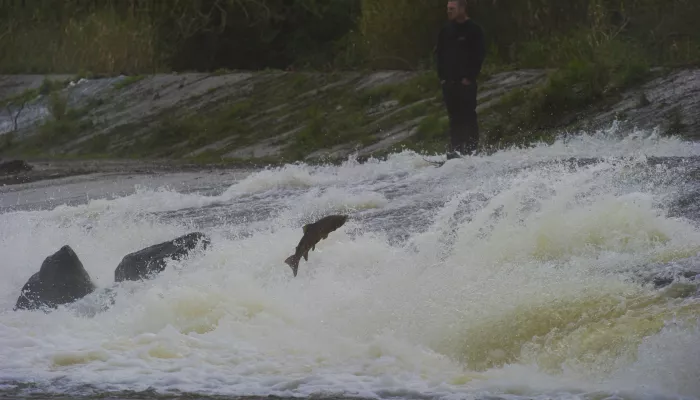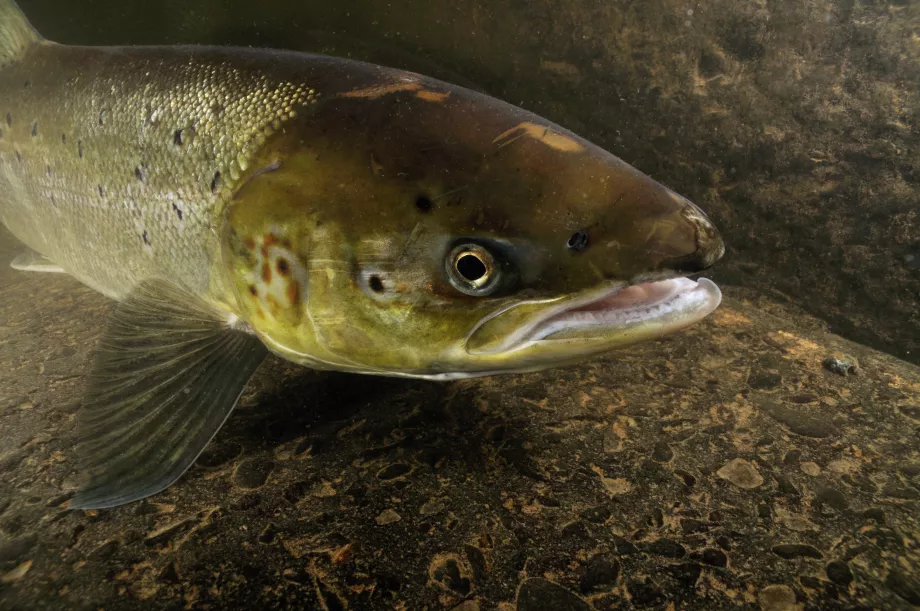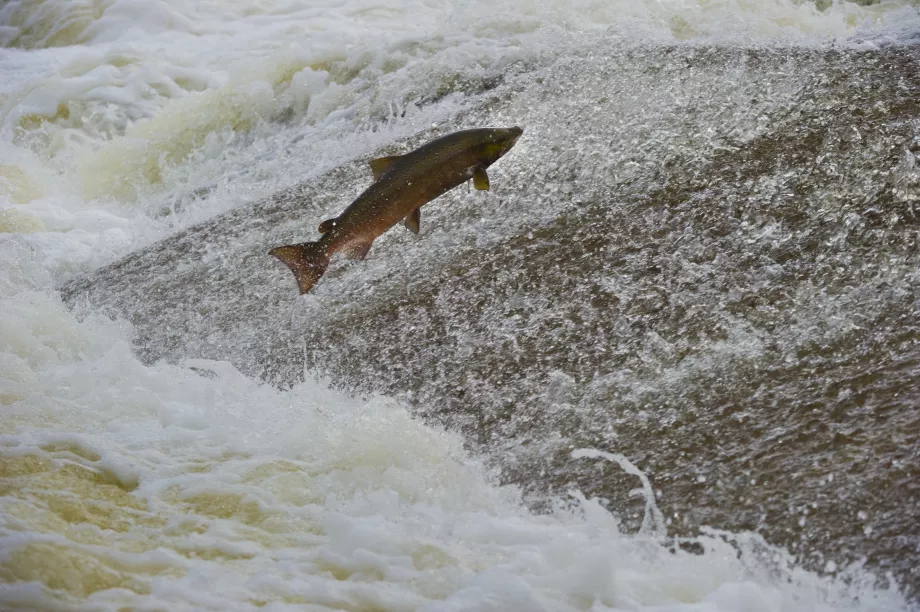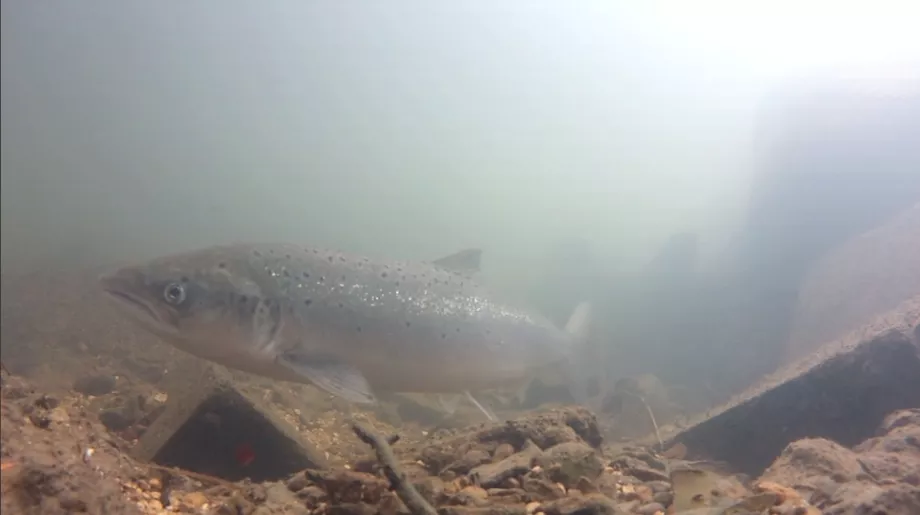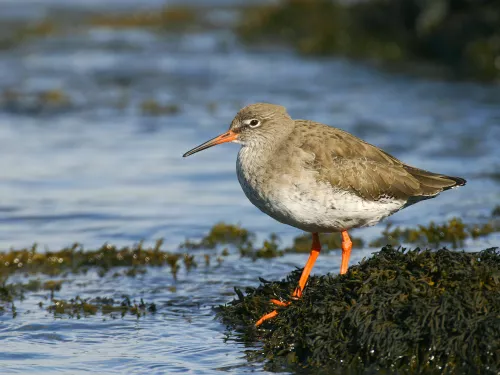Sadly, the King of fish now faces the greatest threat migrating between marine and freshwater habitats. As the planet's blue veins face multiple pressures from climate change and human disturbance to toxic pollution and extreme weather events, the Atlantic salmon and other freshwater fish are in serious trouble.
The Atlantic salmon's conservation status
The main UK population of Atlantic salmon have been reclassified as endangered. This means they are recognised as being threatened with extinction. Meanwhile, global populations of Atlantic salmon have been reclassified as near threatened. If we follow this path, it looks like the UK is set to be the first to lose this iconic species - unless urgent action is taken.
The role of this keystone species
Atlantic salmon play a crucial role as a keystone species, meaning they're vital to the habitats in which they live. As both predator and prey, and through their behaviours, they have a huge impact on the health of a river system and its residents. Their spawning behaviours, for example - creating areas in which to bed the eggs - are a part of maintaining this balance. Their migratory behaviour, too, helps with the transferrence of essential nutrients from the ocean to freshwater exosystems; in turn, this improves the habitat for various species of insects, algae, and fish.
It's clear, then, that we must enforce the law and regulations that protect habitats and rivers from toxic pollution. Nutrient pollution from sewage spills, pesticides, agricultural runoff, and chemicals need to be prevented at the source before they reach our precious rivers.


